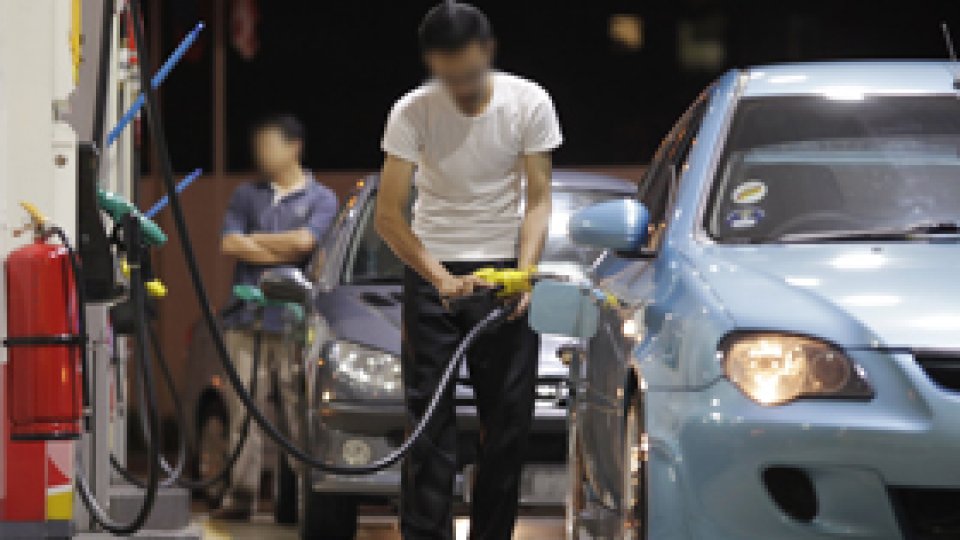Fuel price can be ‘frozen’
Members of the Foreign Investors Council consider that the freeze on fuel prices can only be temporary, irregardless of the measures the Government is aimed at taking in order to stop the fuel price increase.

15 Aprilie 2011, 09:32
During the conference organized by the Foreign Investors Council in Romania was addressed the issue of fuel prices, as per the concern generated by their continuous increase of late, but also by the public statements of Romanian officials who announce the so-called freeze on fuel prices.
Prime Minister Emil Boc also considered it possible, save that the freeze on fuel price can only be operated according to a legislation issued 13 years ago, which was prior to Romania’s accession to the European Union, which could arouse complaints among community officials.
Irregardless of the measures the Government is aimed at taking in order to stop the fuel price increase, they can only be temporary and are certain to have negative effects for Romanians, Members of the Foreign Investors Council consider.
As per the legislative framework today, the possibility to freeze prices on some products is not excluded, but we must consider the fact that no similar case has ever been encountered on a free market.
Finance Minister Gheorghe Ialomiţeanu says that no modalities have been found by now to apply similar protectionist measures without being immediately sanctioned in the European Union.
‘With regards to the freeze on fuel prices, the ones from the Competition Council confirmed for sure that it was possible. Yesterday, in the Government, the Prime Minister also urged both the Competition Council and the Department for European Affairs to come up with proposals on this matter, in order not to get into a conflict with EU directives’, Gheorghe Ialomiţeanu stated.
Fuel companies will comply with a possible price freeze
Although businessmen are not quite satisfied with the Government’s intention, if the price freeze is applied, companies will have to conform with the new disposal, but not for long.
The president of OMV Petrom Group Mariana Gheorghe mentions that the company will confirm with the Executive’s decision, but in conformity with European legislation.
First of all, OMV Petrom follows the rules of both supply and demand and competition rules, Mariana Gheorghe also stated.
‘We are a company that is carried out in accordinance with all the principles and the mechanisms of a free market, which means that our policy is to comply with the principles of a free market economy, on one side, and with Romanian legislation as it is, on the other.
‘All sorts of price freezing will be temporary, because this is how this kind of administrative intervention in the pricing policy goes and, of course, we will have to draw the consequences after the prohibition has expired’, Mariana Gheorghe declared.
On the other side, this is also the opinion of economic analysts, who consider that the fuel price freeze is against the market economy and will have negative effects.
Vice president of the association of Financial and Banking Analysts of Romania Nicolae Chidesciuc claims that the price freezing of any product will not generate, by no means, a positive impact, as it will lead to imbalances in the economy for the time that the price is frozen.
‘We now refer to fuel prices and it will do nothing but to postpone the inflation for the future, therefore it doesn’t mean that the price freeze will solve the problem of a future inflation’, Nicolae Chidesciuc declared.
Other countries have also ‘frozen’ fuel prices
With concern for fuel prices in other European countries, the Government in Bulgaria decided to freeze fuel prices for 30 days, after discussions with oil companies.
The largest oil company in Ireland announced as well that they will freeze fuel prices till October, with approval from the competition Council.
Great Britain will reduce the excise duty on fuel by a penny in the first stage, which will be followed by a reduction of the excise duty by four pennies till 2012.
Other than that, England will also introduce stabilisation mechanisms, by increasing the fees in the refinery and distribution sector.
At last, refineries and fuel distributors in France will bear some of the price increases, subsiding some of the fuel price increases, as negotiated with the Government.
Translated by: Mihaela Grigoraş
MA Student, MTTLC, Bucharest University














